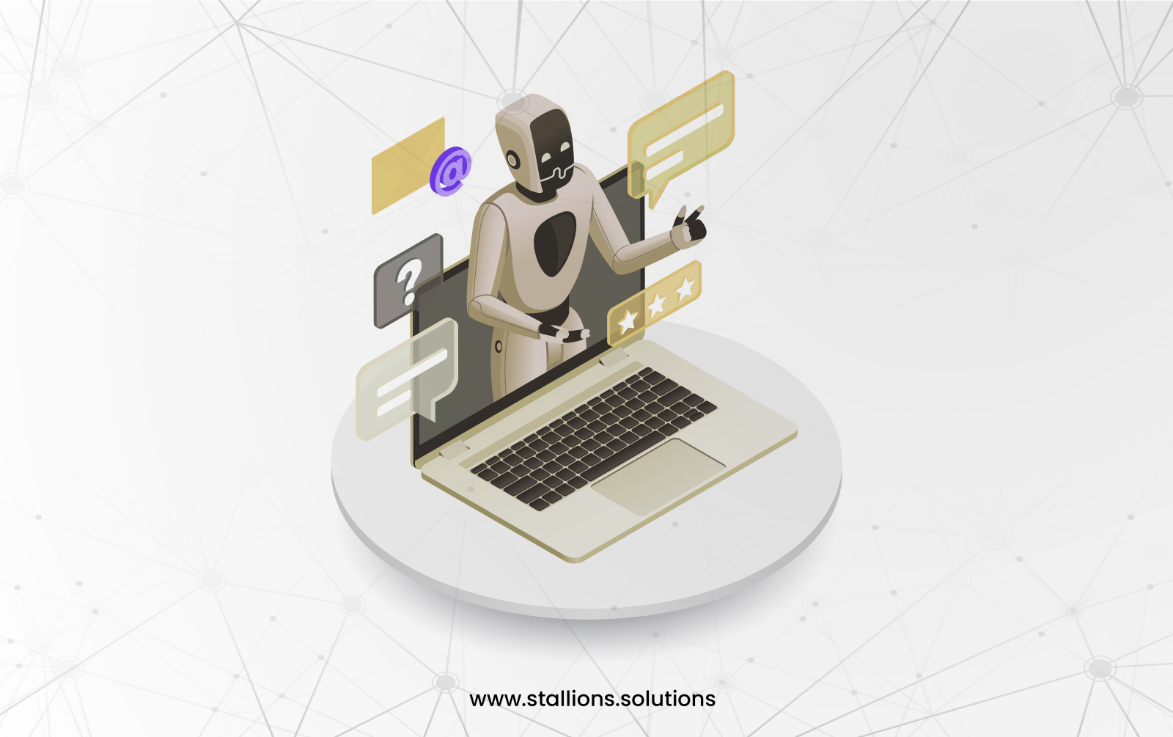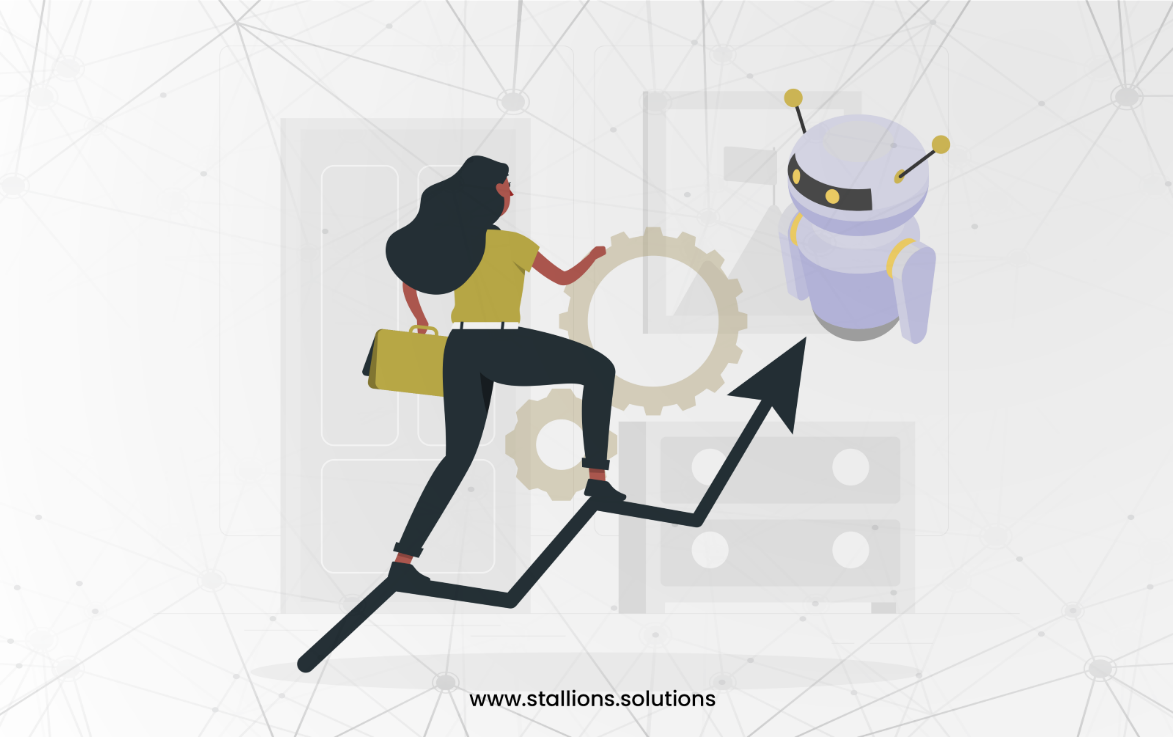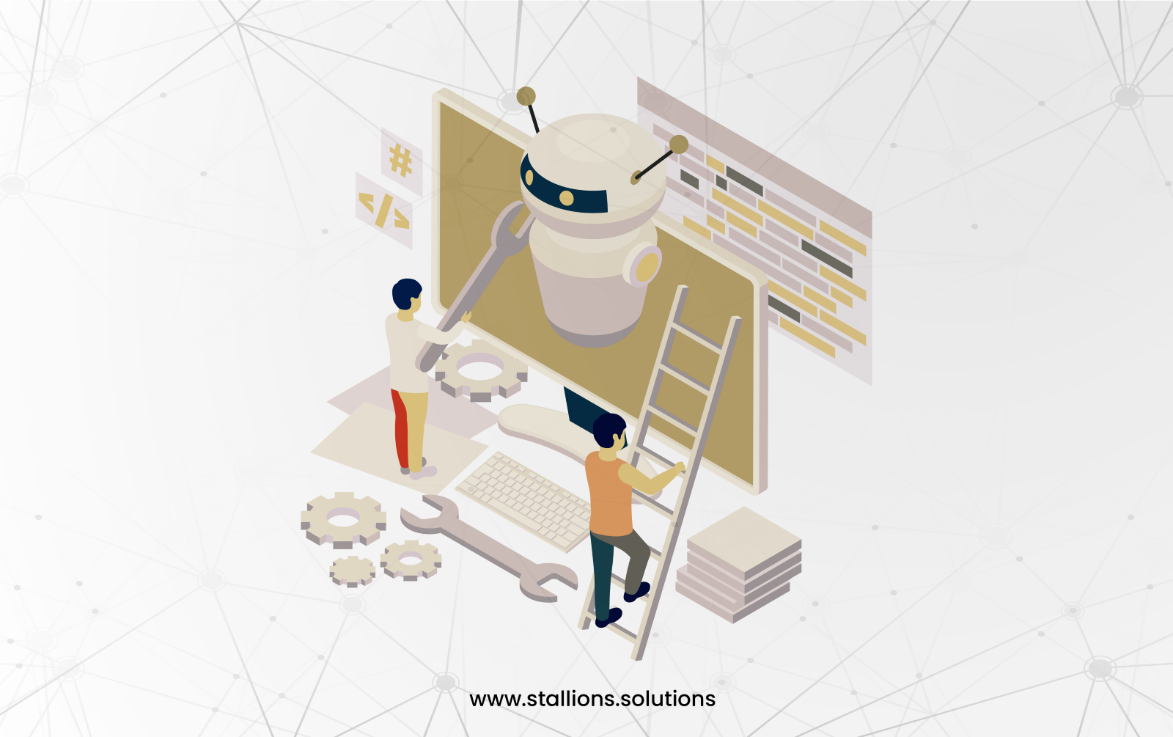In recent years, the usage of artificial intelligence (AI) and bots has transformed the software testing industry. With the help of these technologies, testing may be done more quickly, more accurately, and more efficiently overall. Is software testing going to be dominated by artificial intelligence (AI) and bots as the software business grows and changes?
Let’s examine how artificial intelligence (AI) and bots are transforming software testing in this blog post and why they will probably become even more significant in the years to come.
The Development Of AI In Quality Assurance And Software Testing
Over time, AI has been increasingly prevalent in software testing and quality assurance. From rule-based systems to machine learning, intelligent automation, predictive analytics, and natural language processing, there has been substantial advancement in this field. These developments have resulted in decreased time and expense related to manual testing as well as increased speed, accuracy, and test coverage.
With additional AI advancements, we may expect increasingly more advanced testing tools to enhance software product quality and reliability.
AI Bot in Software Testing

In software testing, intelligent software systems that are created to carry out different software testing and quality assurance-related tasks are referred to as AI bots. QA teams can concentrate on more complicated testing scenarios by using these bots to automate repetitive tasks. Artificial intelligence (AI) bots may recognize patterns and anticipate possible problems by analyzing data and learning from previous test results using machine learning techniques. Additionally, they can carry out duties like test case design, code analysis, reporting, and giving developers and QA teams real-time feedback.
The Effects of AI and Bots on Software Testing
Improved Accuracy

Accuracy is one of the main advantages of using bots and AI in software testing. Because there is no human involvement, there is a far lower possibility of errors, which produces more accurate test findings.
Increased Scope and Depth of Testing
QA experts can test software on a far greater scale by using bots and AI. As a result, companies may test a greater number of scenarios and edge cases, which improves the quality of the program and allows for a more complete testing procedure.
Testing Automation

Automating test execution with bots and AI frees up human testers to work on more difficult and important jobs.
Tests Without Code
Codeless testing is another usage for bots and AI that eliminates the requirement for human testers to create test codes to conduct tests.
Quick Analysis of Test Results
Testing teams can find flaws and faults more rapidly because of the speed and accuracy with which bots and AI can analyze test results.
Improving Automation of Tests
By offering guidance on where to concentrate automation efforts, bots and AI can improve the test automation process.
Now Vs. Future Of AI And Bots In Software Testing
| Current | Future |
| Concentrated on automating repetitious testing procedures like smoke and regression testing | Able to use machine learning algorithms to detect trends and anticipate possible problems, so enabling intelligent automation. |
| Mainly used to boost productivity and cut down on testing-related time and expenses. | Will make it possible to conduct more thorough and accurate testing, which will speed up the time to market for high-quality software solutions. |
| Focused on manual test creation and execution. | Able to automatically create test cases using machine learning algorithms and historical data |
| Restricted interaction with other technologies, such as Agile and DevOps. | Will have complete integration with Agile and DevOps techniques, enabling quicker release cycles and continuous testing. |
| Restricted to standard testing scenarios, like functional and user interface. | Will allow for the creation of new testing scenarios in areas like performance, security, and IoT. |
Challenges and Limitations
While software testing can greatly benefit from AI and bots, there are several drawbacks and restrictions that companies should be aware of. The following are some of the primary drawbacks and difficulties:
Lack of Human Judgement
While bots and AI are excellent at automating repetitive and routine jobs, they are not capable of making decisions based on experience or intuition—a crucial component of software testing.
Education and Experience
Bots and artificial intelligence (AI) implementation in testing calls for certain knowledge and abilities, which might be difficult for companies without the requisite internal resources or experience.
Complexity
Organizations may find it challenging to manage and maintain their testing environments if bots and AI introduce yet another degree of complexity to the testing process.
Price
It can be costly to use bots and AI in testing since it needs a large investment in infrastructure, tools, and knowledge.
Security
Bots and AI raise security issues since they are subject to hacking and cyber-attacks.
Conclusion
In conclusion, software testing will greatly benefit from AI and bots in the future. We could expect increasingly more advanced testing instruments that help raise the caliber and dependability of software as long as technology keeps developing. Software testing with bots and AI integration brings new opportunities and challenges for professional profiles and skill sets in the sector. Organizations need to continue investing in their QA teams and keeping up with the newest technology developments to remain competitive. We may anticipate a future with more effective, precise, and high-quality software solutions that satisfy the needs of both users and enterprises by embracing bots and AI in software testing.



